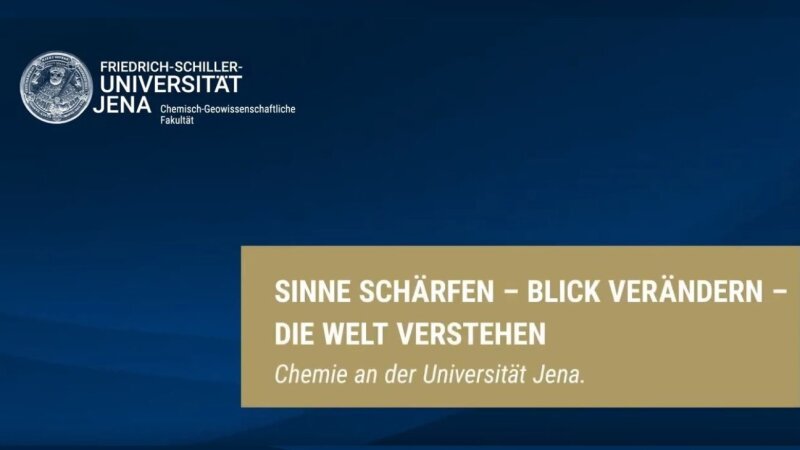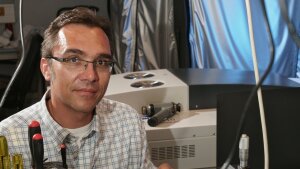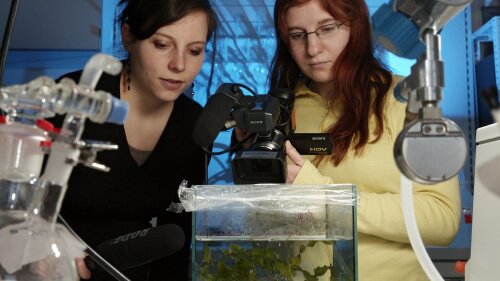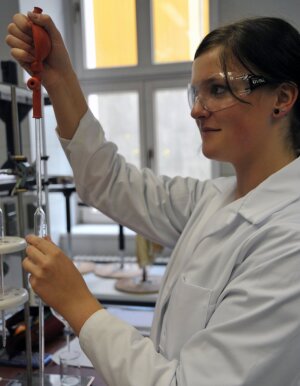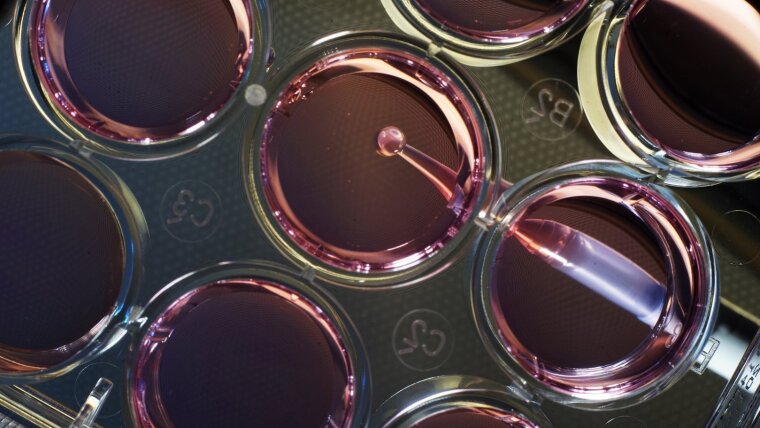
- Degree
- Bachelor of Science
- Admission restriction
- without admission restriction (without NC)
- Duration
- 6 Semesters
- Credits/ECTS
- 180
- Teaching language
- German
- Tuition fee
- None
- Semester contribution
- € 272,65
- Start of studies
- Winter semester
- Part-time possible
- Yes
- Institutions
- Faculty of Chemistry and Earth Science
- Institutes of the Faculty of Chemistry and Earth Sciences
Digital discovery tour with free app: Would you like to find out more about our degree in Chemistry with fun quiz questions and puzzles? Click here for our interactive discovery tour app [in German].
More detailed information can be found in the module catalogue for the study programme [in German]External link.
- Excellent reputation in Germany and abroad: Our university has close ties to the Max Planck Institute for Chemical EcologyExternal link, the Max Planck Institute for BiogeochemistryExternal link, the Leibniz Institute of Photonic TechnologyExternal link and the Fraunhofer Institute for Ceramic Technologies and SystemsExternal link. The members of those institutions are involved in the teaching at our University. Numerous final and doctoral theses are also carried out in cooperation with industry.
- Lots of practical content: As special emphasis is placed on the acquisition of skills to prepare students for their future career; around 50% of the degree programme is spent in the laboratory.
- Excellent teaching facilities: The University has state-of-the-art facilities for practical work with a separate workplace for each student.
- industrial research: developing new products and improving existing processes
- production: monitoring production as a manager (e.g. deadlines, costs, quality and compliance with environmental and safety regulations)
- chemical analysis and quality control: analysing raw materials and products
- patenting: protecting research results and monitoring the commercial use of inventions
- marketing and sales: calculating production volumes and prices, advertising and selling new products, advising potential customers
- authorities and administration: researching, monitoring, working in laboratories
-
University entrance qualification
A university entrance qualification, such as a general secondary school leaving certificate, is required for admission onto the study programme.
More information on university entrance qualifications can be found here.
-
Language requirements
The study programme is taught in German. You must therefore have a very good command of German at the start of the study programme. Proficiency in English is required.
Room E006
Humboldtstraße 11
07743 Jena
Google Maps site planExternal link
Humboldtstraße 11
07743 Jena
Google Maps site planExternal link
Humboltstraße 11
07743 Jena
Google Maps site planExternal link
University Main Building / SSZ
Fürstengraben 1
07743 Jena
Google Maps site planExternal link
Office hours:
We offer consultations in person, by telephone, and via Zoom. You can make an appointment by calling us on +49 3641 9-411111 (Mondays to Fridays from 9:00 to 11:00) or outside these office hours on +49 3641 9-411200. You can also use our remote help desk.
Consultation hours:
Mondays, Tuesdays, Thursdays and Fridays (9:00 to 12:20), Tuesdays (14:00 to 18:00), and Wednesdays and Thursdays (14:00 to 16:00).
Video chat: Zoom – Video chat Videochat ZeitenMondays to Fridays (12:30 to 13:00) Password ZSB2020 Data protection informationpdf, 101 kb
University Main Building, Room E065
Fürstengraben 1
07743 Jena
Google Maps site planExternal link
Opening hours:
Mondays (10:00 – 12:00)
Tuesdays (13:00 – 15:00)
Wednesdays (10:00 – 12:00)
Thursdays (13:00 – 15:00)
Fridays (10:00 – 12:00)
You can also use our remote help desk at
www.uni-jena.de/service-ssz
or send us your enquiries by post.
Telephone hours:
Mondays to Fridays
(9:00 – 11:00)
Postal address:
Friedrich-Schiller-Universität Jena
Studierenden-Service-Zentrum
07737 Jena
University Main Building
Fürstengraben 1
07743 Jena
Google Maps site planExternal link
